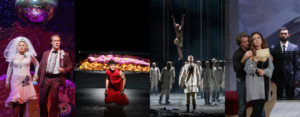
Best of 2022: OperaWire’s Staff on the Best Performances of the Year
By OperaWireIt’s that time of the year. A time when we can look forward to what’s to come, but also a moment to reflect on all we’ve experienced. And as has become the tradition here at OperaWire, we have asked our writers to select their choices for the opera performances that truly marveled them in 2022.
So without further ado, we’ll let them do the reflecting. Enjoy!
João Copertino – Laurent Naouri & Maciej Pikulski in Recital (Athenée Theater)
This was a formidable year in terms of Opera: Lise Davidsen’s voice in “Ariadne” still rings in my head; Sabine Devieilhe and Raphaël Pichon were sublime in their “Lakmé;” Ian Bostridge and Veronique Gens showed all their power in Gluck’s “Armide” … There were many wonderful moments.
However, in my opinion, the most remarkable concert was a recital of chansons given by Laurent Naouri and Maciej Pikulski at Paris’s Athenée theater in November. It is hard to imagine a duo one would greet with more anticipation, and they truly exceeded already high expectations. A cozy Monday night recital metamorphosed into a night to remember. Naouri acted all the songs theatrically, displaying intimate connections among language, music, and storytelling. His movements, though grandiloquent, were never over-the-top. Everything was meticulously choreographed: each breath, each high note, each consonant. Pikulski, scenically shy, was the perfect pianist. Few times have Ravel’s intricate rhythms sounded more uncomplicated. I cannot say it was a flawless night, but the amazing thing was that even the mistakes were deeply incorporated into the performance in a way that made everything even more special. Only great artists have this superpower.
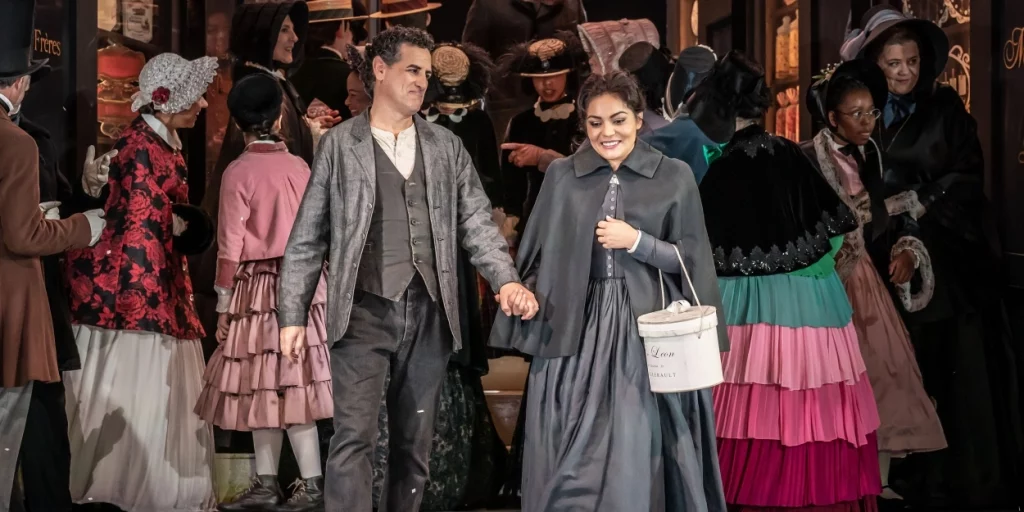
Mike Hardy – Numerous
2022 was a ‘catch-up’ year for me, finally getting to see and review some performances that were canceled due to the “unprecedented” pandemic.
June saw the Grange Park Opera stage “La Gioconda” with an ailing, but still magnificent Joseph Calleja, and November saw the Royal Opera House stage “La Bohème” with a magnificent but underpowered Juan Diego Florez.
That “Bohème,” however, will most definitely remain one of my highlights, not least for the bravura shown by Danielle de Niese’s Musetta, who staggered majestically across the tables of Café Momus in high-heeled shoes, singing a glorious “Quando m’en vo,” whilst simultaneously managing to remove her underwear in the process!
More Puccini in June with Armenian soprano Lianna Haroutounian singing a stunning “Madama Butterfly” alongside great British tenor hope Freddie de Tommaso.
July saw the UK debut of Mark Adamo’s “Little Women” at Opera Holland Park. The beautiful and gifted Mezzo Charlotte Badham also made her professional debut here in the role of Jo. Although thoroughly modern, with undertones of Sondheim and a touch of Bernstein in parts, it’s a taste I haven’t yet fully acquired, but Louisa May Alcott would probably have been sufficiently enchanted by it.
Polina Lyapustina — Boris Godunov (Teatro alla Scala)
Despite all the ambiguity of the choice of the opera for Prima della Scala and the obvious politicization of the event, the early version of Boris Godunov presented by Riccardo Chailly in a new — darker staging by Kasper Holten is a true masterpiece.
When I was writing an editorial reflecting on this event, I could barely keep myself from showering in compliments on the striking dramaturgy and witty directing, showing a deep understanding of both the historical context and current situation. Perfectly complemented by thoughtful scenery, lighting, and costumes, it was an ideal realization to keep the audience involved and fascinated by this grave story for hours.
But certainly, it wasn’t just that. It was Riccardo Chailly who led the orchestra with passion but kept the tempo slow and smooth, letting us taste every shade of the grief. It was the choristers, showing such perfect diction, that one surely understand and feel through every word.
And it was the cast. Ildar Abrazakov performed the role with outstanding musicianship switching the focus to Godunov’s inner world and showing the wide range of emotions in this rich bass in every part of the range. Ain Anger on the opposite showed incredible range constancy, and yet, with his dark and grave bass, he took us through all the twists of the history of Russia in the XVI century.
Suffering became a keyword of this interpretation. The darkest opera for the darkest times. And yet, the extraordinary work of the artists created a performance as grave as beautiful and enlightening, the one I would gladly suffer to see again.
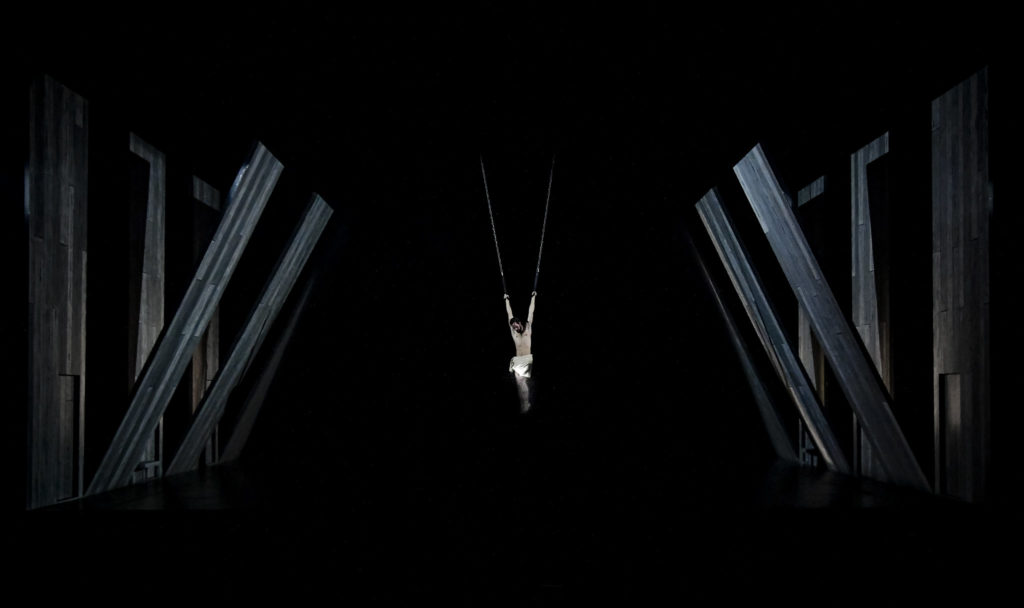
Alan Nielsen – From the House of the Dead & The Glagolitic Mass (Brno’s Janacek Festival)
I have been fortunate in having reviewed so many excellent productions over the course of the year that choosing my favorite was indeed a difficult task. Even whittling them down to a handful was no easy task.
There were three excellent productions of Rossini operas. There was a brilliantly sung “Le Comte Ory” starring Julie Fuchs and Juan Diego Flórez, and a cleverly conceived “Otello” directed by Rosetta Cucchi, both from Pesaro’s Rossini Festival, and an imaginatively updated version of his “Moise et Pharaon” from the Aix-en-Provence festival, which concluded with a video of the Egyptians drowning in the sea, followed by a scene in which tourists sat sunning themselves on the beach, oblivious to the tragedy that had occurred there.
Also from the Aix-en-Provence Festival was an electrifying production of Monteverdi’s “L’Incoronazione di Poppea” conducted by Leonardo Garcia Alarcón, starring Jake Arditti and Jacquelyn Stucker, who between them created a performance of high intensity in which it was possible to feel sexual tension pulsating through the performance.
However, my choice for the best production of 2022 would have to be Brno’s Janacek Festival’s double bill of “From The House Of The Dead” and “The Glagolitic Mass.” The director, Jiri Herman, took the imaginative and courageous decision not only to combine the two pieces so that one emerged from out of the other, but to incorporate overt Christian symbolism into “From The House Of The Dead.” Christ was ever-present, suffering with the prisoners, and in the final scene, he dies for them, to be resurrected in the Mass with the prisoners in attendance. It might sound unappealing to many people, but, I think, they would be very surprised. It was dramatically powerful, with each work enhancing the other. It was also a reading that grew naturally from Dostoyevsky’s book, the source material for the opera, with its message that Man is able to endure such traumatic situations due to his irrational faith. Musically, the new musical director of Covent Garden, Jakub Hrusa, oversaw a superb performance in which he brought out the intensity and dramatic potential of both works.
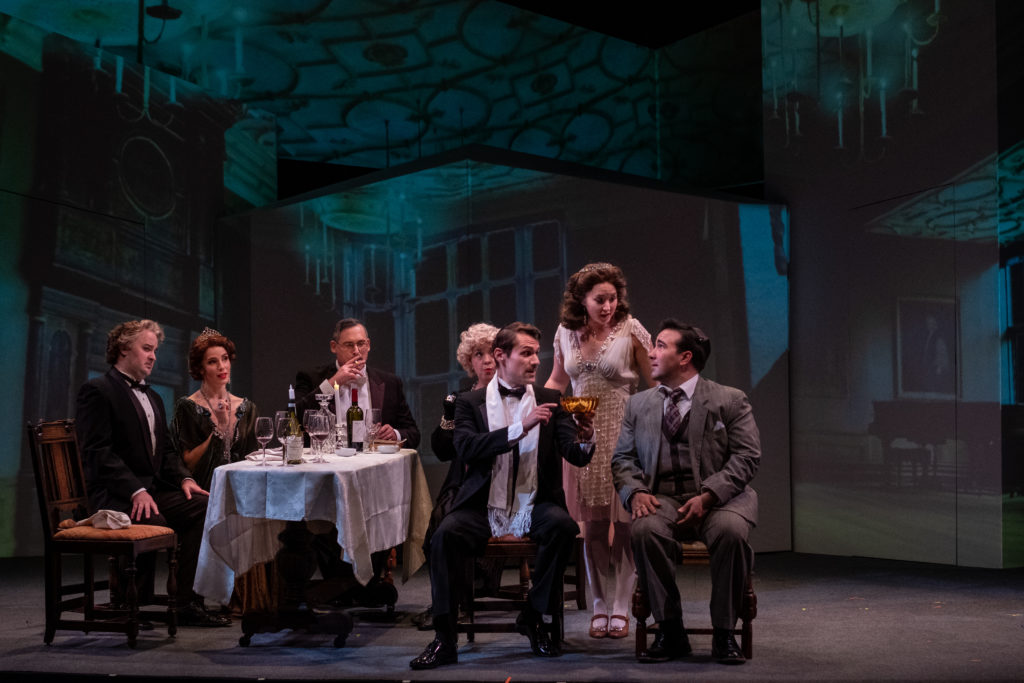
New York, New York
January 25, 2022
New York City Opera, Garden of The Finzi-Continis.
PHOTOGRAPH by ALAN CHIN
Chris Ruel – The Garden of the Finzi-Continis (New York City Opera)
I have chosen Ricky Ian Gordon and Michael Korie’s “The Garden of the Finzi-Continis” as my favorite opera of 2022. The opera teaches a stark lesson about an evil currently raising its ugly head in the United States: anti-Semitism.
“The Garden of the Finzi-Continis” is a warning, particularly given the rise and normalization of fascist and neo-Nazi ideologies in American politics. Though we don’t like thinking so, the sociopolitical realities of today can quickly change into the horrors of tomorrow.
The Italian-Jewish Finzi-Continis didn’t recognize this, and believed their wealth and privilege immunized them against the horrors of the Holocaust. It didn’t. And, 80 years later, it’s tempting to believe the political principles upon which US and European democracies were founded will keep us safe from murderous autocrats. They won’t.
Opera has a lot to say, and Gordon and Korie’s work spoke loud and clear: think again if you believe money, power, and influence is a surety against murderous hatred.
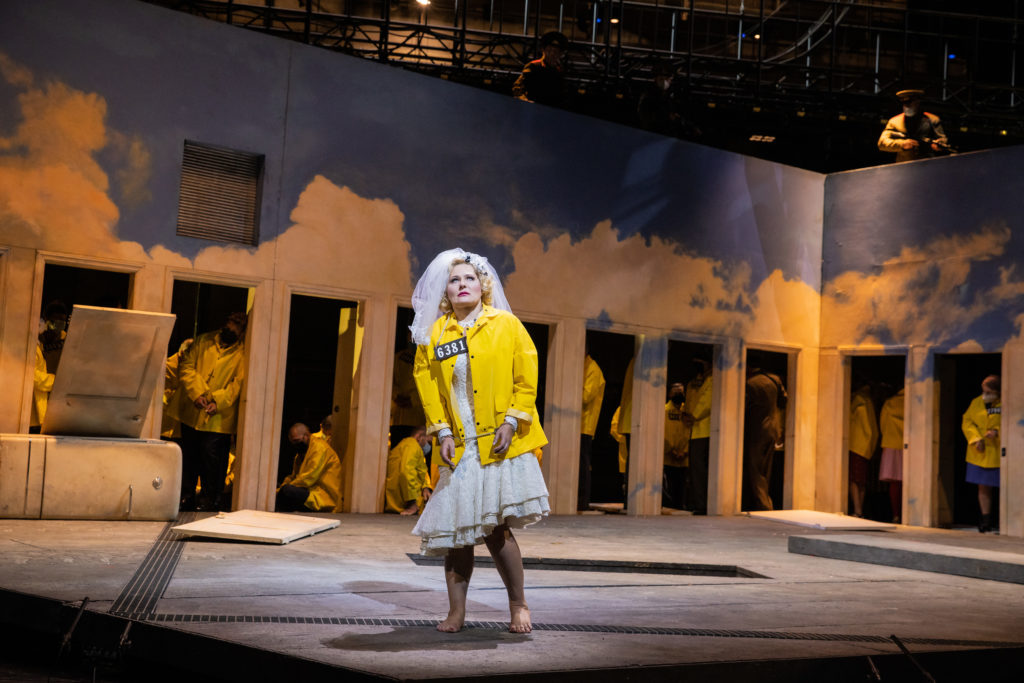
Evan Zimmerman / Met Opera
David Salazar – Lady Macbeth of Mtsensk (Metropolitan Opera)
Before we get to my pick, I must say that this was a year in which I saw a number of incredible individual star turns. Mostly at the Met, I witnessed the arresting Eleonora Buratto in “Madama Butterfly,” Ermonela Jaho stealing every moment she sang in “Turandot,” the endless breath control and expansive legato by Federica Lombardi in a couple Mozart operas, Allan Clayton and Nicole Car’s intricate portrayals in “Peter Grimes,” the glorious music of Kevin Puts and Joyce DiDonato’s immersive Virginia Woolf in “The Hours,” and Sondra Radvanovsky’s imperiousness in “Medea.” Then there was a trio of singers in “Rigoletto” across two different performances – Quinn Kelsey (Nov. 14), Benjamin Bernheim (Nov. 14 and Dec. 8), and Lisette Oropesa (Dec. 8) – that delivered some of the most thrilling and complex vocal palette of Verdi singing I have heard in ages.
But as it says above, this is about that harsh, gritty, sarcastic, violent, icy opera by Shostakovich. The Met Opera’s production by Graham Vick is truly one of THE theatrical experiences at the Met, managing to find a way to explore the theatrical potential of the opera without getting in the way of the opera (a rare feat for most directors, including Vick himself). Moreover, the work feels as fresh and relevant as ever and the production’s pointed criticism rings even truer as a result. Throw in what was a triumphant cast with Svetlana Sozdateleva, in her Met debut, magnetic the entire time, both in her vocal presence and her characterization of the tragic Katerina. She was joined by Brandon Jovanovich in a truly chilling and lecherous turn as her lover/betrayer Sergei, not to mention John Relyea who has been a revelation in his recent performances at the Met. Then there’s Keri-Lynn Wilson who conjured up one incredible musical moment after another in a season. The Met Opera’s season got off to a tremendous start in its first week with fantastic productions of “Medea” and “Idomeneo,” but “Lady Macbeth of Mtsensk” was the triumphant capper of that trilogy.
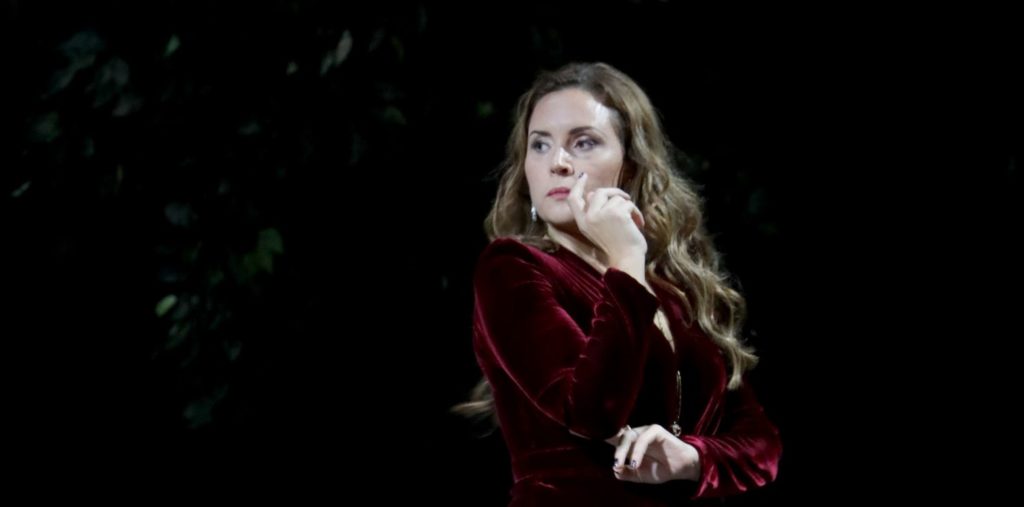
Ph. Teatro alla Scala / Brescia – Amisano
Francisco Salazar – Fedora (Teatro alla Scala)
It was an interesting year in the opera world and one that had controversy to spare but for all the headlines there were many great performances to remember. I had the chance to see opera around the world starting in Muscat where I saw an unforgettable Vladislav Sulimsky in the title role of “Rigoletto.” Then there was the dazzling Jessica Pratt in “Il Barbiere di Siviglia” at the Teatro San Carlo di Napoli and how could I forget the impeccable work of Gregory Kunde in “La Forza del Destino” at the Verdi Festival. At the Met, I was surprised by the beauty of Kevin Puts’ score to “The Hours” and by Aleksandra Kurzak’s gritty turn as “Tosca.”
But the performance that I saw as the best of the best was “Fedora” at the Teatro alla Scala. Mario Martone brought an unconventional production that sometimes lacked new ideas, but it was Sonya Yoncheva and Roberto Alagna’s committed turns that brought fireworks to the stage. Yoncheva, who was making her role debut, demonstrated a lush tone in her middle voice, while Alagna was pure passion and fire in his big return to the Milan stage. It didn’t hurt that Marco Armiliato was at his best alongside George Petean’s impeccable voice and Serena Gamberoni’s star-making turn.
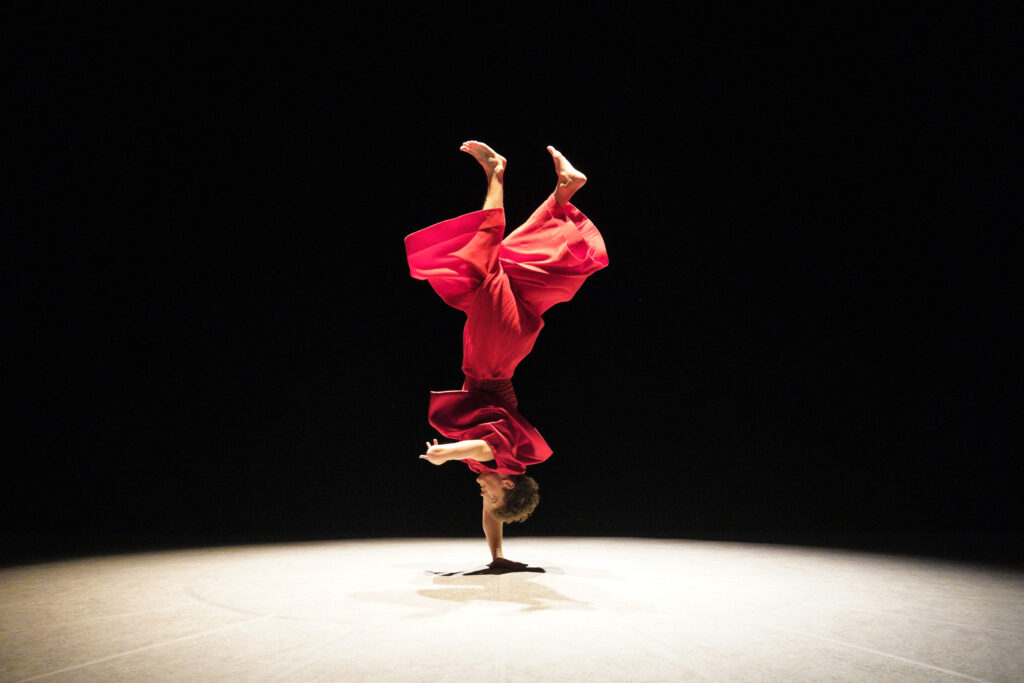
Countertenor Jakub Józef Orlinski as Orpheus in Gluck’s “Orpheus and Eurydice” at San Francisco Opera
Lois Silverstein – Orpheus and Eurydice (San Francisco Opera)
Gluck’s “Orpheus and Eurydice” is a quintessential love story: young lovers separated by death, who want to be reunited and what they do to make that happen. In the San Francisco production, directed by Matthew Ozawa, young Orpheus, in flaming red trousers and shirt, somersaults onto the stage to mourn his lost beloved. Performed by the exceptionally talented Polish countertenor Jakub Jósef Orlínski, we were immediately captivated by his graceful movement and his sonorous sound. As he went to the Underworld to plead for the return of his beloved Eurydice, sung so poignantly by Chinese soprano, Meigui Zheng, we hung on every tone and gesture between them.
Orlínski sang and moved as if he were in and of water. His pleading was one in body and sound, his facial expression, his even yet expressive descant tones. Was he real? And if so from what planet? We remained immersed from beginning to end.
The San Francisco Opera Orchestra, conducted by Peter Whelan, with the utmost grace and felicity, bathed us, through three acts, with moving sound and artistry, in an array of beautiful feelings, and stirred some of our profound thoughts. Even weeks after, we experience the harmony such a well-coordinated production may bring. Truly it was a gem.
John Vandevert – Flight (Royal Music Conservatory London)
This year, I got to expand my operatic experiences greatly, leaping into contemporary opera but also refreshing my palette with contemporary takes on 19th century opera. However, my favorite opera of 2022 would have to be the fantastic production of “Flight” by Jonathan Dove, performed by the Royal Music Conservatory London and directed by Jeremy Sams. Blending digital screens and special effects with high level singing and dramaturgy, the students who performed the contemporary work were far above their years and it was a pleasure to review while in London. Right across the street from Royal Albert Hall, the opera was staged in The Britten Theatre, a mini La Scala if you will, a very handsome place for an opera. The best part was seeing how dimensions and levels were played with on the stage, as well as making the production “meta” by having the refugee (sung by countertenor Hugh Cutting) sit on the stage before the curtain rose, were all fascinating plays on operatic staging tropes and conventional procedures.
Categories
Special Features

